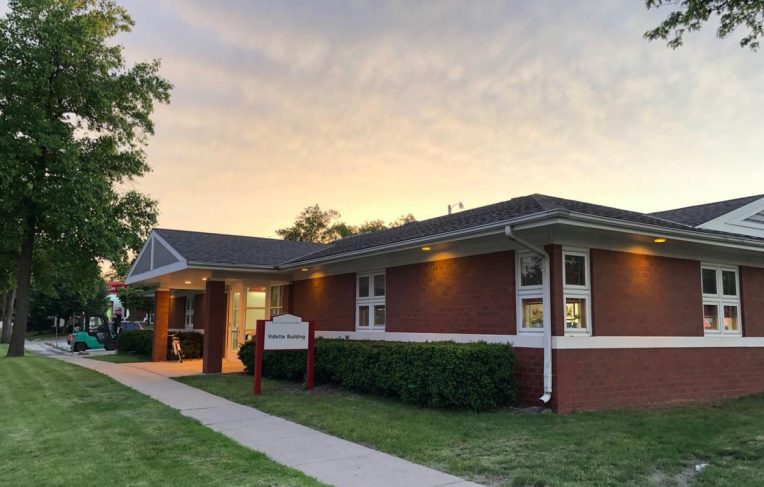The Vidette will begin the fall 2021 semester headed in a new direction after a reorganization that will bring the student media outlet closer to Illinois State University’s School of Communication and better prepare students for the journalism of the future.
For most of its 133-year history, The Vidette has been an independent, student-run media outlet. Starting this fall, The Vidette will double-down on its role as a journalism learning lab by more closely linking its work with School of Communication curriculum, particularly its journalism program. Vidette journalists will continue to be able to get real-world experience, while also earning course credit toward graduation.
The Vidette journalists will retain their editorial independence while being guided by a faculty advisor, with additional support from other School of Communication faculty. The Vidette Publication Board will continue a key role in overseeing the publication.
“There is no question that the journalism industry is all about change, and The Vidette staff are navigating this situation and will come out better positioned as a leader in digital journalism,” said Dr. Steve Hunt, executive director of the School of Communication. “Our staff has embraced this moment as an opportunity to improve operations and opportunities for our students. With a new funding and curricular model, The Vidette is well-positioned for success going forward.”
The transition will also more closely align The Vidette with WGLT, the professionally staffed NPR member-station for Bloomington-Normal. WGLT’s staff and studios will relocate from the Old Union Building to the Vidette Building, 500 W. Locust St., in the coming months. While The Vidette and WGLT will remain separate organizations with separate newsrooms, both staffs will benefit from having ISU’s journalism learning lab and community-facing media outlet in the same physical space. Students have and will continue to work for both outlets, and there will be opportunities for both staffs to team up for special reporting projects.
The Vidette’s faculty advisor will report to WGLT General Manager R.C. McBride. The Vidette’s business and advertising operations will be absorbed by existing WGLT staff as a cost-saving efficiency. The organizations will maintain separate finances, and private donations to either will continue to be earmarked only for that organization.
“WGLT is committed to training and preparing the journalists of the future. WGLT, both on its own and through NPR, can offer the work of Vidette students a chance to reach a different audience and gain some valuable experience, not to mention resume material,” McBride said. “And in addition to access to mentorship Vidette students already have to faculty and the pub board, WGLT’s award-winning journalists will now be more accessible.”
This is only the latest evolution in the long history of The Vidette, which was founded in 1888 and first printed as pamphlets. After decades as primarily a print publication, The Vidette will shift its focus to all-digital publishing for the fall 2021 term. The Vidette’s students will also have access to WGLT’s recording studios should they want to embark on audio journalism projects.
The Vidette, like so many American newspapers, has faced serious financial challenges in recent years as traditional advertising revenue has vanished. Starting in July 2020, the Vidette Transition Committee explored many options for reshaping The Vidette into the type of nimble, ambitious, and sustainable digital news publication that could be the future of the journalism industry. The work was led in part by Vidette alumni and ISU’s journalism faculty, including Vidette general manager John Plevka. They eventually settled on the model that will go into effect for fall 2021.
“As a student-run organization, The Vidette has been invented and reinvented may times during the last 133 years,” Plevka said. “The retirement of a proud printed tradition represents another one of those reinventions. Moving exclusively and aggressively into a digital format and aligning it with School of Communication curriculum is a reinvention that should strengthen the overall student experience at The Vidette.”
The School of Communication is a national leader in delivering state-of-the-art communication education. Through its undergraduate and graduate programs the school prepares students to tackle the most significant challenges facing the discipline and its professions in the 21st century. The School of Communication offers many opportunities for students to get professional experience, including with TV-10, WZND, and The Vidette.

